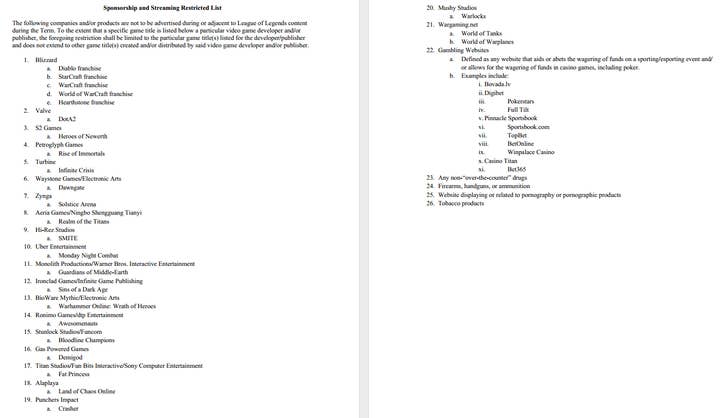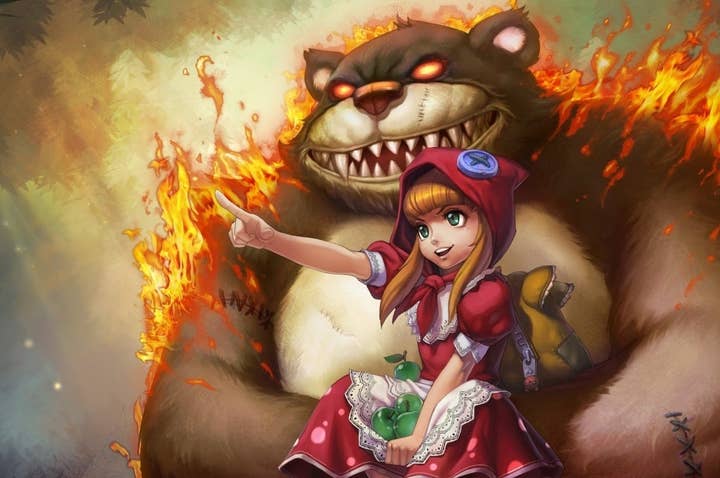Riot bans pro LoL players from streaming competitor's games
Rules of championship contract forbid DOTA, Starcraft broadcasts
Riot Games has issued a new contract to teams which participate in its League of Legends Championship Series which forbids players from livestreaming many of its competitors titles at any time.
The new agreement, obtained by OnGamers, details those titles which fall under the restrictions, including obvious rival competitive e-sports titles like DOTA 2 and Starcraft, but also including the less understandable Fat Princess.
Whilst it may seem reasonable that the teams participating in the series not stream rival games during tournaments, the new rules dictate that any player who livestreams any games on the list at any time at all will find themselves and their team ejected from the series. The ruling also covers streams of a potentially offensive or illegal nature, including pornography, the promotion of gambling and drug use.
Following some public concern from the game's community, both professional and casual, Riot's Whalen Rozelle made a post in a Reddit thread discussing the move, explaining the decision.
"We say this all the time: we want League of Legends to be a legitimate sport," he writes. "There are some cool things that come from that (salaried professional athletes, legitimate revenue streams, visas, Staples Center), but there's also a lot of structural work that needs to be done to ensure a true professional setting.

"We recognize there may be some differences of opinion in the perception of pro players' streams. In the past, pro gamers only had to worry about their personal brands when streaming and, at most, may have had to worry about not using the wrong brand of keyboard to keep their sponsor happy. Now, however, these guys are professionals contracted to a professional sports league. When they're streaming to 50,000 fans, they're also representing the sport itself.
"I can't stress enough how these guys in the LCS are on the road to being real, legitimate athletes. This is new territory for a lot of teams (especially in esports), because the transition goes from being a group of talented individuals to being real icons of a sport and a league. Similarly, you probably wouldn't see an NFL player promoting Arena Football or a Nike-sponsored player wearing Reebok on camera. Pro players are free to play whatever games they want - we're simply asking them to keep in mind that, on-stream, they're the face of competitive League of Legends."
Whilst Rozelle's sporting analogies might have some resonance, it seems unlikely to go down well with the game's audience and players, who are, after all, not beholden to Riot in the same way that a full-time employee would be, especially given the growing popularity of streaming channels and YouTube. How that upset will manifest in opposition to the possibility of exclusion from the most popular tournament in the world's most played competitive title remains to be seen.

